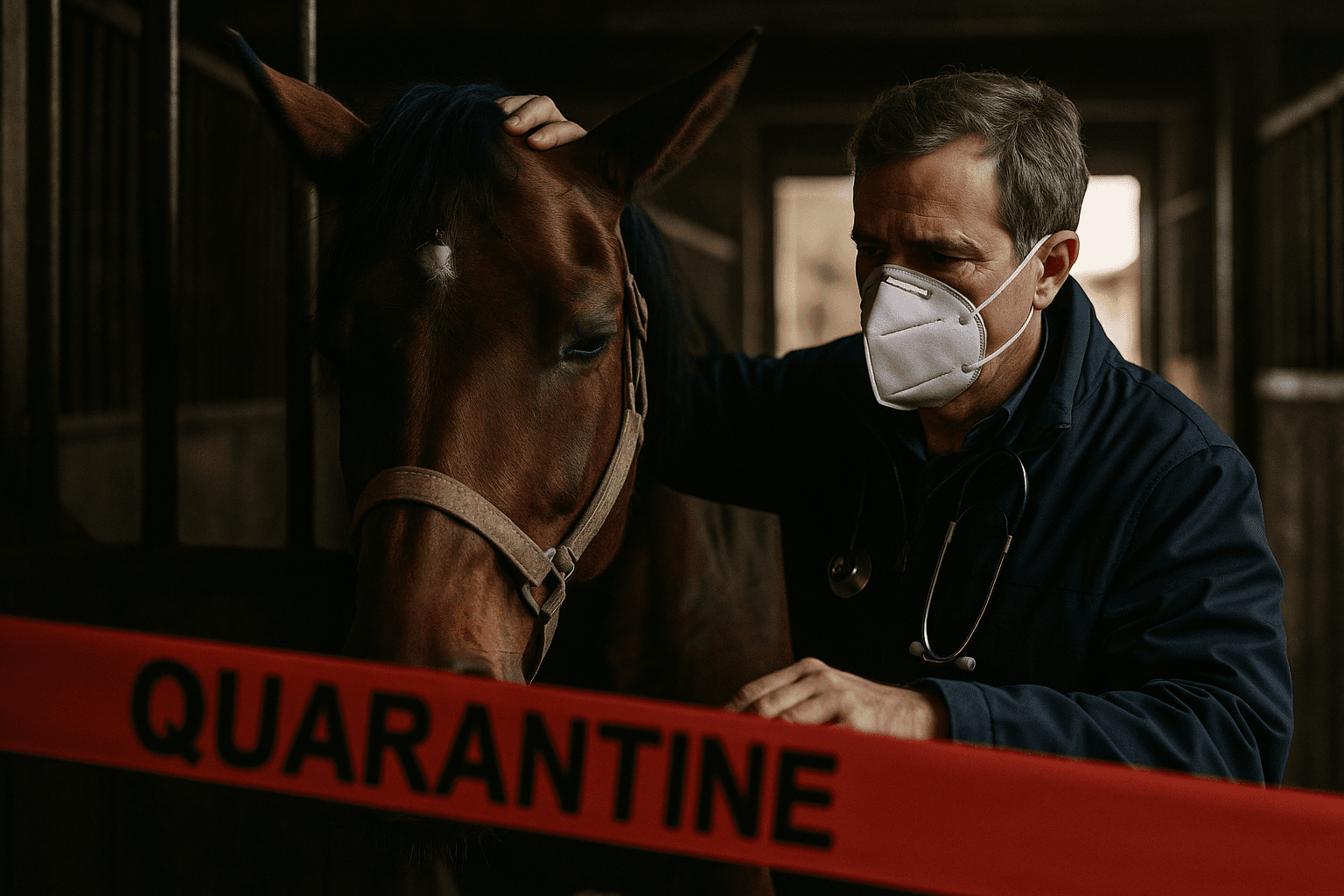New Mexico confirms first equine neurologic case, nearby counties warned
New Mexico authorities confirmed the state first case of equine herpes myeloencephalopathy on November 21, 2025, tracing the illness to a horse that attended equine events in Waco Texas earlier in November. The confirmation prompted quarantine rules, updated interstate entry requirements and strong biosecurity guidance that could affect horse owners and events in Apache County and surrounding Arizona communities.

New Mexico authorities confirmed on November 21 that the state had its first identified case of equine herpes myeloencephalopathy, the neurologic form associated with equine herpesvirus 1. The affected animal had attended multi state equine events in Waco Texas from Nov. 5 through Nov. 9. Officials say the horse is in isolation and is improving with supportive care.
State officials moved quickly to issue quarantine and biosecurity guidance, update interstate entry requirements to include ICVI temperature recording and statements about exposure, and urge cancellation or postponement of equine events in affected areas until the outbreak is contained. The event triggered multi state tracing efforts and prompted additional regulations and advisories in adjacent jurisdictions as public health and animal health agencies seek to limit spread.
For Apache County residents the outbreak increases the urgency of routine prevention steps and awareness of the burdens rural owners face. Horse owners in and around the county, including those who travel to rodeos and shows, may now encounter stricter entry requirements into New Mexico and neighboring states. Veterinary services and testing capacity are limited in many rural communities, and those access gaps can slow detection and containment, particularly for small scale owners, working ranch families and equine programs serving tribal communities.
Public health and animal health guidance from New Mexico and other states emphasizes heightened testing for fever and neurologic signs, prompt isolation of suspect animals, and strict barn cleaning and disinfection practices. These measures are intended to stop respiratory spread and fomite transmission at stables and events. The situation also highlights broader policy questions about cross border coordination, support for rural veterinary infrastructure, and equitable access to testing and care for horse owners who may not have the resources to isolate animals for extended periods.
Local owners should contact their veterinarians before moving animals, follow new interstate entry paperwork and temperature recording rules, and consider postponing non essential events. As officials continue tracing contacts from the Waco events and monitor for further cases, coordinated support and clear communication will be essential to protect animals and the livelihoods tied to the equine economy in Apache County.


